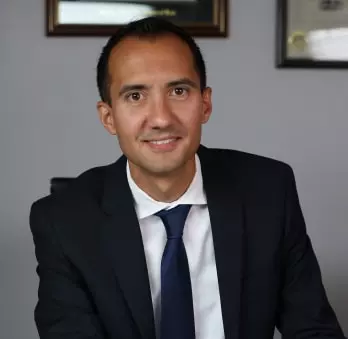A PROBABLE CAUSE SEARCH FOR EVIDENCE IS YET ANOTHER EXAMPLE OF A LAWFUL WARRANTLESS VEHICLE SEARCH.
If the police have probable cause to believe that contraband or other evidence of a crime is hidden somewhere in a vehicle, the officer may conduct a warrantless vehicle search.
This probable cause warrant exception authorizes a search of every part of the vehicle that could conceal the object of the search, including all containers, packages, bags, etc. in the vehicle.
For example, if the police have sufficient probable cause to believe a vehicle contains a firearm that was recently used in a homicide, the probable cause warrant exception can authorize the police to search the vehicle and its containers without a warrant.
However, the scope of the search must be limited to places and things that could possibly conceal the firearm.
Under the probable cause warrant exception, the police could not search an ashtray or a wallet if they were looking for a firearm because it is extremely unlikely that a firearm could be concealed in an ashtray or wallet.
THE LEGAL JUSTIFICATION ALLOWING THIS SPECIFIC TYPE OF WARRANTLESS VEHICLE SEARCH IS BASED PRIMARILY ON THE REDUCED EXPECTATION OF PRIVACY AFFORDED TO MOTOR VEHICLES.
While we may not feel that we should have a lower expectation of privacy in our vehicles and their contents, the United States and Minnesota Supreme Courts have concluded that we do not have the same privacy protections in our vehicles as we do in our homes.
This reduced expectation of privacy is based on the mobility of vehicles, the periodic inspection and licensing requirements of vehicles, and the public nature of travel associated with vehicles where occupants and contents are typically in plain view of the public.
However, this does not mean there is no expectation of privacy in a motor vehicle.
Our experienced Minnesota criminal defense lawyers will continue to fight to protect the right to privacy in a motor vehicle.
BEFORE THE POLICE CAN CONDUCT A WARRANTLESS VEHICLE SEARCH UNDER THIS EXCEPTION, THE OFFICER MUST HAVE PROBABLE CAUSE TO SEARCH FOR EVIDENCE.
Courts examine probable cause by looking at all of the facts and circumstances that were known to the officer at the time of the search. The officer must be able to point to objective facts that would lead an ordinary person to have a strong suspicion that a vehicle contains contraband or other evidence of a crime.
A court will typically uphold a warrantless probable cause vehicle search if the facts and circumstances at the time of the search created a fair probability that evidence would be found in the vehicle.
Probable cause is a fairly low standard, but some sort of objective fact is required. An officer’s mere suspicion or hunch will not support probable cause. If there is no probable cause to support the search, our Minnesota criminal defense lawyer will fight to have any evidence collected during the search suppressed.
WHETHER THE POLICE CAN SEARCH AN OCCUPANT OF A MOTOR VEHICLE UNDER THIS PROBABLE CAUSE MOTOR VEHICLE WARRANT EXCEPTION BRINGS A WHOLE HOST OF OTHER RULES INTO PLAY.
In general, probable cause to search a vehicle does not automatically allow the police to also search an occupant of that vehicle. However, the police may have the right to search an occupant if an arrest follows the probable cause search.
CONTACT US
If your vehicle was recently subject to a police search, contact our Minneapolis/St.Paul criminal defense lawyers today.
Our criminal defense lawyers will review the facts and circumstances surrounding the search of your vehicle and determine if the police conducted a lawful search.
If not, our lawyers will aggressively fight to have all evidence suppressed.



